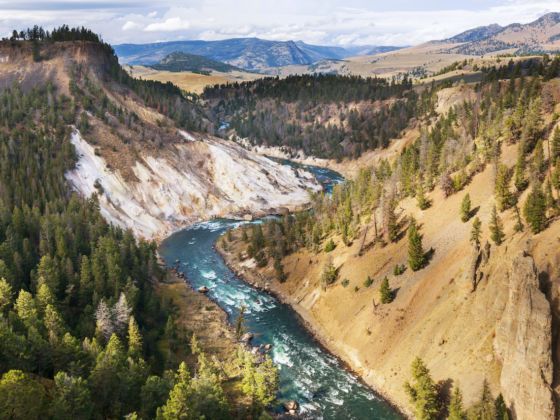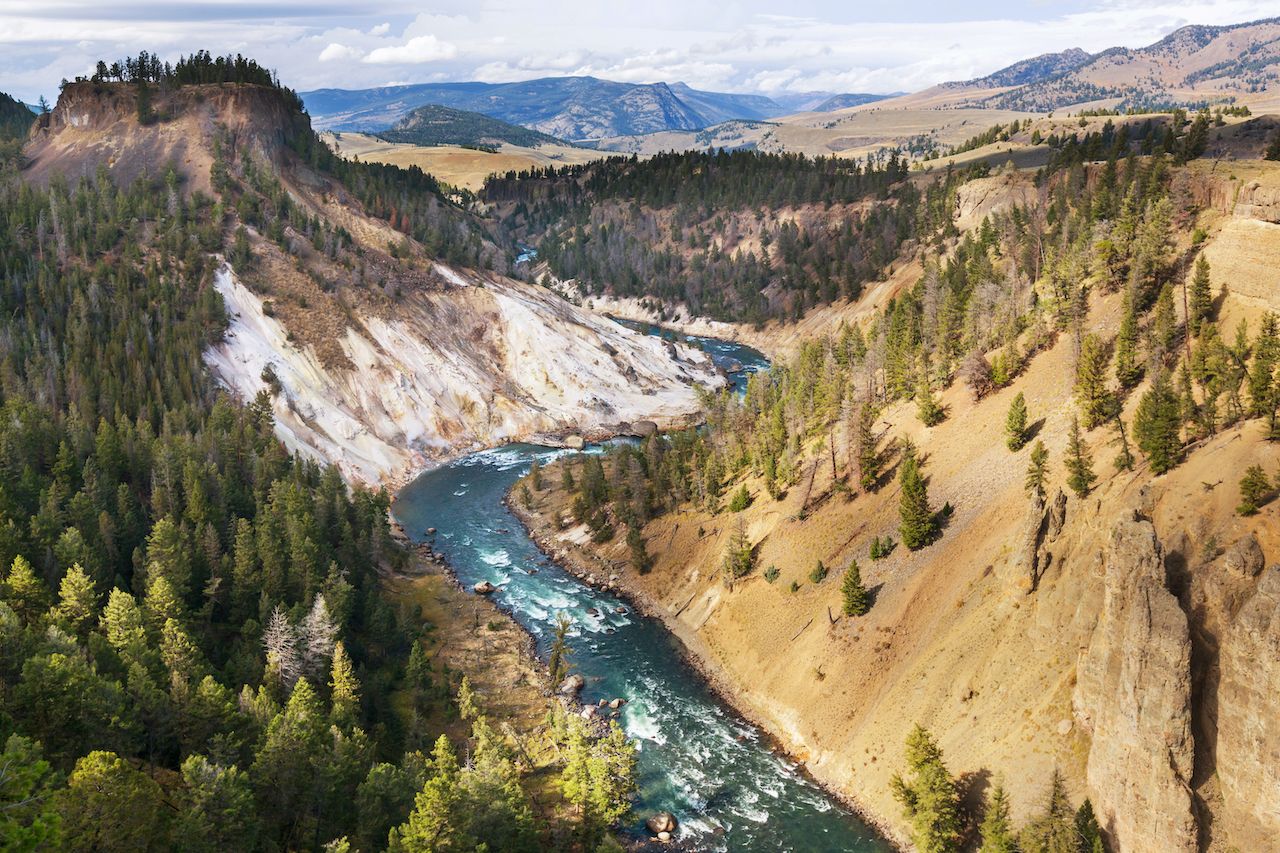Think of the American West and it’s hard not to immediately focus on Wyoming — home of cowboys and rodeos, big history, big culture, and big landscapes. That last one is particularly evident to anyone traveling the highways and scenic byways of this incredible state. There are places you’ll see here that just can’t be described without the seeing, true monuments to the power and beauty of nature, to the West, and to the people who get out and explore them. In Wyoming, you’ll want to be one of those people.
1. The Tetons
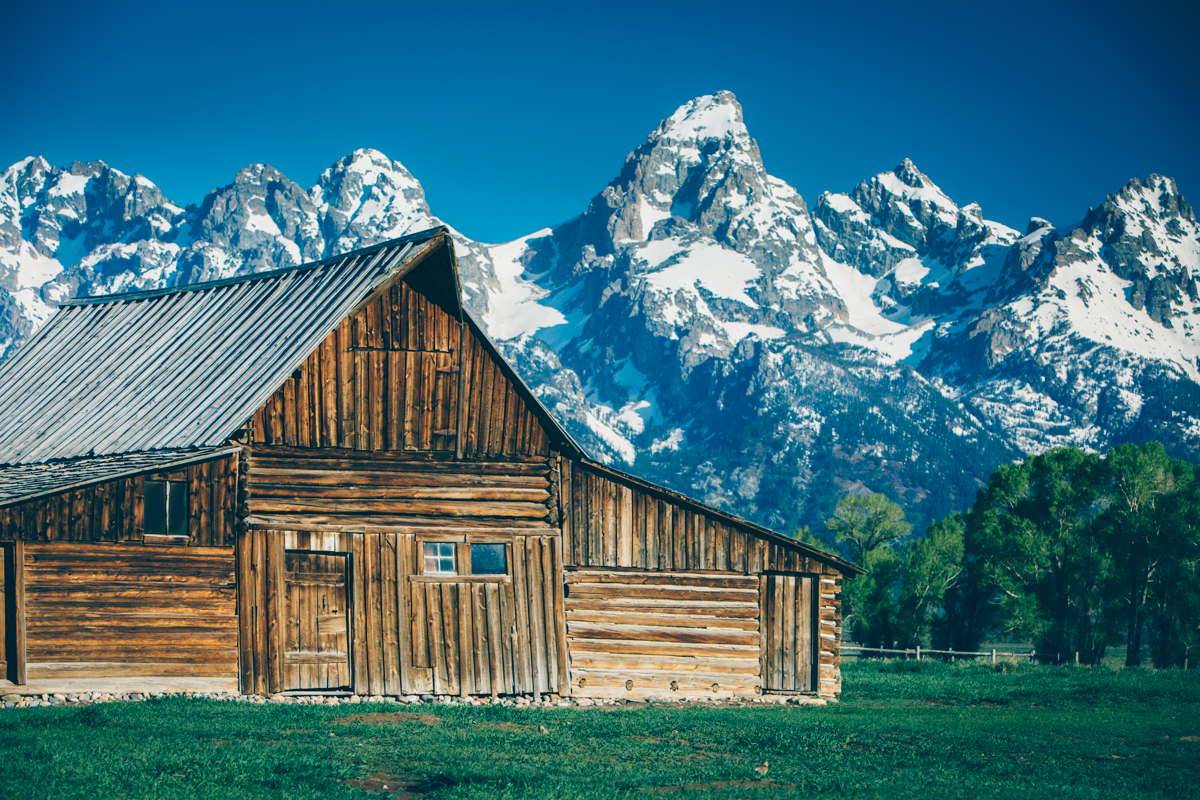
Photo: Scott Sporleder
The youngest range in the Rockies sits along Wyoming’s border with Idaho and exhibits all the jaggedness and drama you’d expect from mountains that have only seen around nine million years of erosion. Grand Teton, at just under 14,000 feet, rises in the center, with several other 10k+ peaks strung out in either direction. This is the namesake of the surrounding Grand Teton National Park, as well as one of the premier mountaineering destinations in the country. Summitting is typically a two-day affair, with gnarly exposed stretches and some technical sections, along with the ever-present threat of lightning storms in summer. Taking in the view next to the historic homesteads of Mormon Row is less risky but equally dramatic.
2. Yellowstone’s geysers and springs
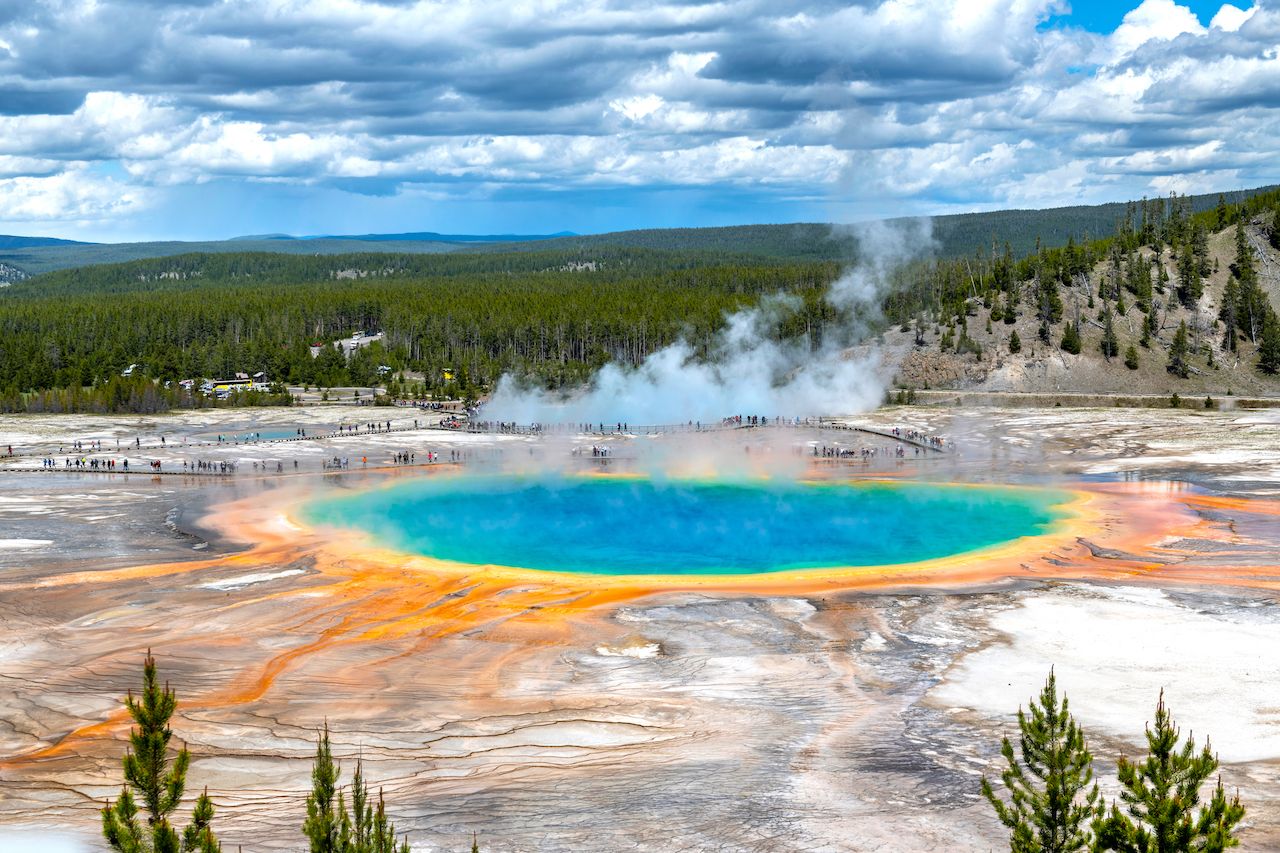
Photo: Cinematographer/Shutterstock
As if the Tetons weren’t enough, just up the highway sits the world’s very first national park and home of some of America’s most unique landscapes: Yellowstone National Park. The park is huge, covering and protecting over 3,400 square miles, but it’s probably the geothermal features found here that are most celebrated. In fact, the supervolcano simmering under Yellowstone’s surface is so powerful that an estimated one half of all the geothermal features in the world exist within the borders of the park. They include the Old Faithful Geyser, which spouts boiling water 100+ feet into the air every 60 minutes or so; the ultra-colorful Grand Prismatic Spring, the largest hot spring in the US; and the travertine terraces of Mammoth Hot Springs, among many, many others.
3. Wind River Range
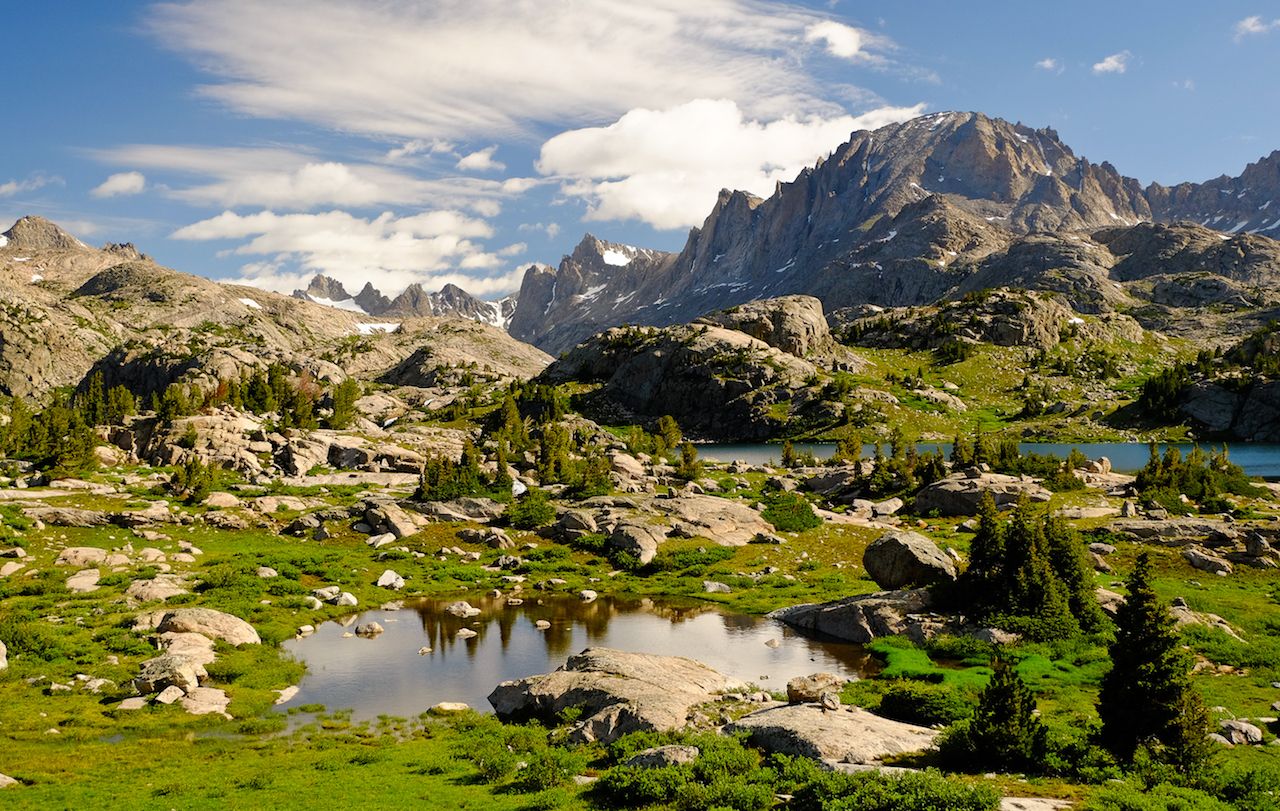
Photo: Tobin Akehurst/Shutterstock
The 100-mile run of the Wind River Range angles southeast to northwest, beginning near Lander and intersecting the Greater Yellowstone region close to Dubois. Apart from Grand Teton, the Winds comprise most of the tallest mountains in the state, including Gannett Peak, which takes the title at just over 13,800 feet. This is high country, but it’s also incredible backcountry — two different national forests and multiple wilderness areas cover parts of the range, where trailheads themselves often require a serious hike in to access. Long-distance trekking, climbing, multi-night camping, and fishing the mountain lakes and streams are popular activities; there’s a scenic byway that skirts the range, if you want to get a closer look before choosing your point of entry.
4. Lamar Valley, Yellowstone
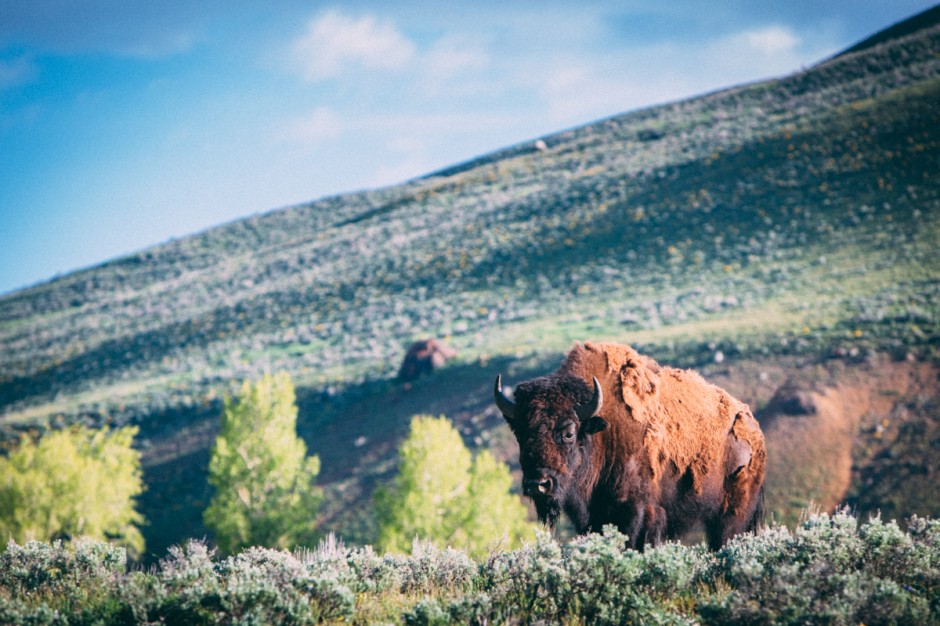
Photo: Scott Sporleder
What the various geyser basins are to geothermals in Yellowstone, the Lamar Valley is to its wildlife. With a number of creeks feeding the Lamar River along this stretch of valley in the north of the park, food and water are abundant. And where food and water are abundant, you’ll see herds of bison, bighorn sheep, elk, antelope, moose, and deer. And where those big herbivores are present, you can expect to catch glimpses of the park’s apex predators, if you’re lucky: grizzlies and wolves. If you really want to get a sense of what the Lamar Valley is all about, visit during winter, when crowds are small, snow blankets the ground, and the animals are going about the business of surviving another season.
5. Devils Tower
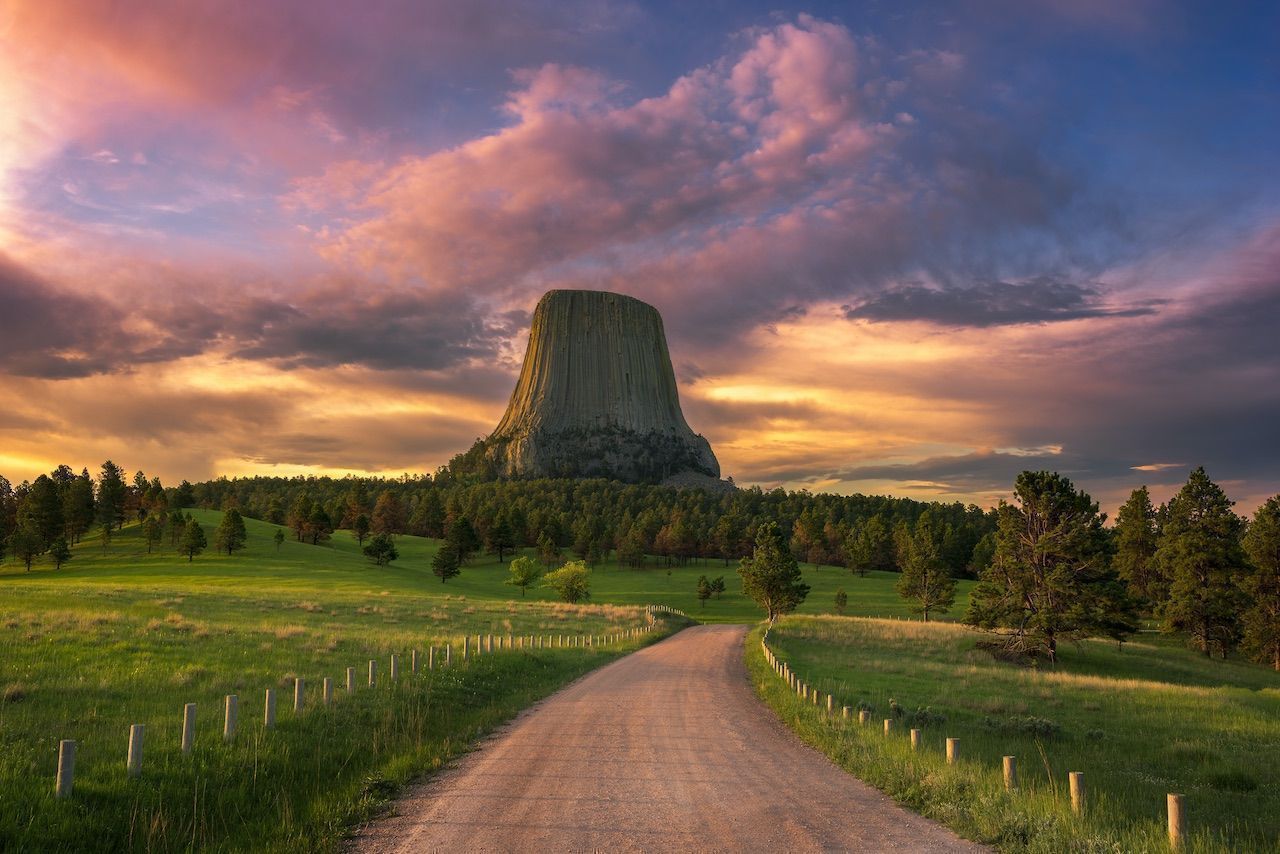
Photo: Shutterstock/Anthony Heflin
From one corner to the other — shift focus from the high mountains and volcanic wonders of northwestern Wyoming and travel due east for around 400 miles, and there on the horizon you’ll spot a true natural monument if there ever was one. Standing stock straight, some 1,200 feet higher than the surrounding rolling hills, is the unyielding stone pillar of Devils Tower. Geologists aren’t entirely sure how the tower formed; it may be all that remains of a once-great volcano, or a solidified slug of magma that rises ever taller as the soft sedimentary rock around it erodes over time. Various Plains tribes consider the formation sacred, and have much more lyrical accounts of its creation. Devils Tower National Monument sits near the town of Sundance, less than an hour’s drive from the South Dakota border.
6. Grand Canyon of the Yellowstone
The Yellowstone is one of the West’s great rivers, an important tributary of the Missouri, and one of the national park’s showpieces. It both feeds and drains the massive Yellowstone Lake, but where things get really interesting is a little bit farther downstream. The entrance to the Grand Canyon of the Yellowstone is marked by a pair of tremendous waterfalls (Upper and Lower Yellowstone Falls), which shepherd the river into a steep gorge up to 1,200 feet deep and with crumbling walls of rust- and sulfur-colored rock. The canyon continues for 24 miles as it flows north through the park.
7. High Plains
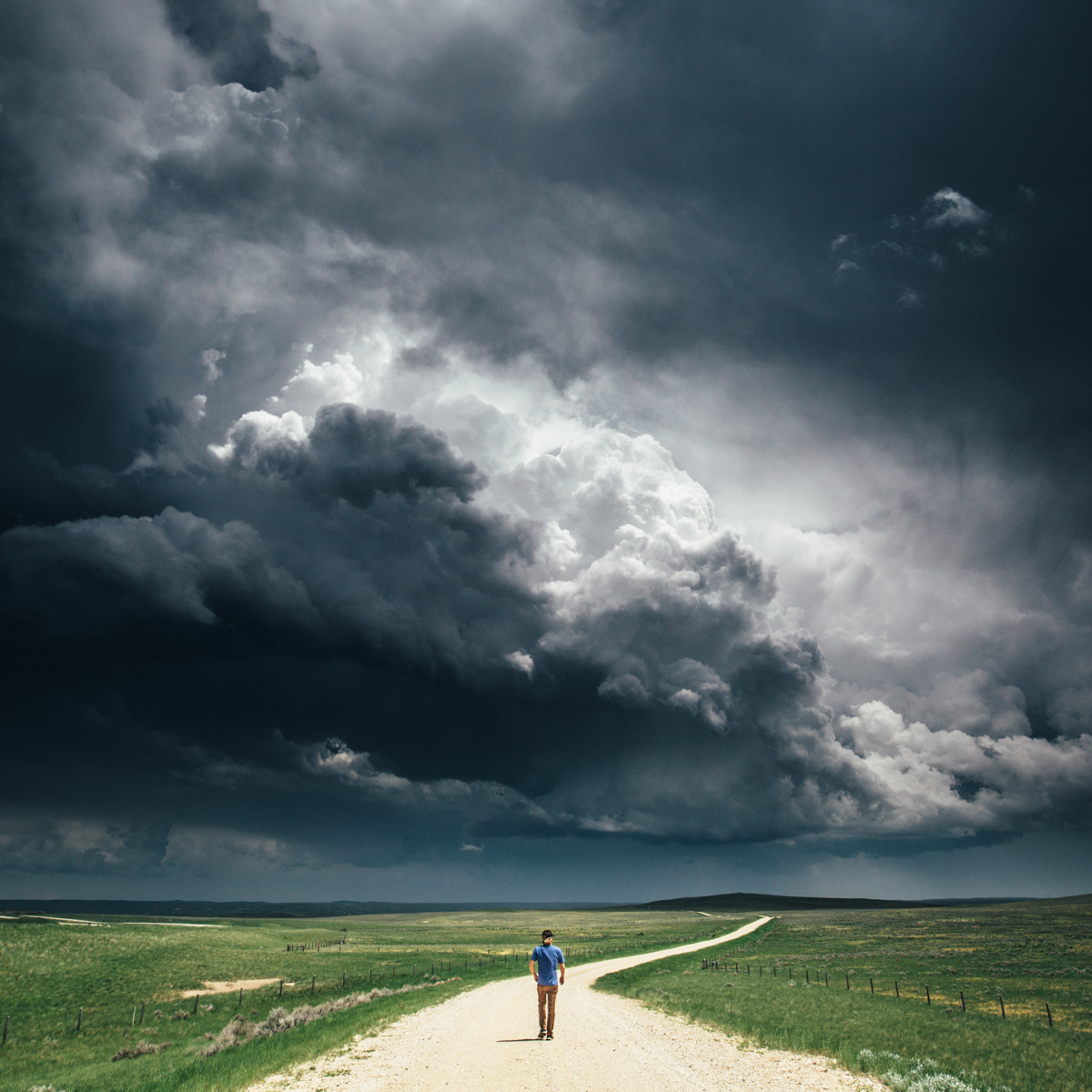
Photo: Scott Sporleder
Not all of Wyoming is tall peaks and yawning river gorges, and elevation changes aren’t prerequisites for beautiful landscapes. Much of the eastern half of the state falls into the High Plains, great flat stretches of earth running off with dozens of miles of visibility toward the horizon, where they may impact a distant mountain range, or an oncoming storm. It’s understated landscape, but certainly a monumental one, perhaps all the more so for its contrast with everything else in this list.

